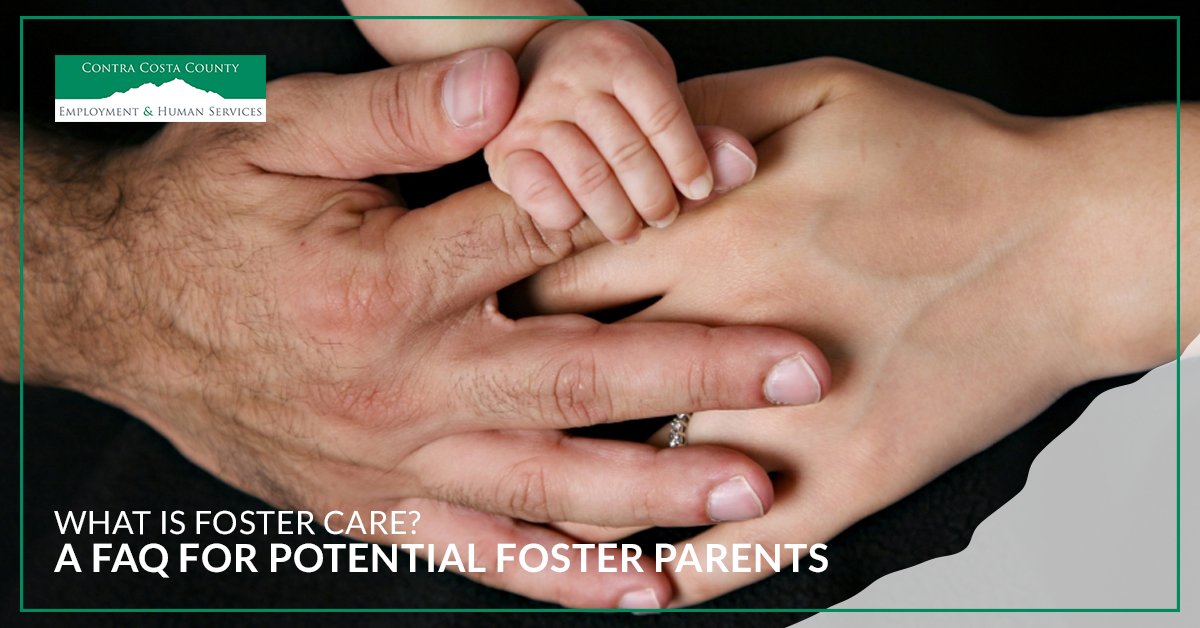
In our previous blog we started off by telling you all the good that can come from being a foster parent. That good is not only for the child, but also for the community. And a fair amount of joy and wellbeing splashes back onto you as well!
But perhaps we were getting ahead of ourselves. Maybe the thing we should do is answer the most basic questions about foster care so that you can decide if it might be the right thing for you. Today we’re going to address some of the most frequently asked questions about foster care so that you can become better informed about how fostering a child works.
So, What Is Foster Care?
In its simplest form, foster care is the process of an adult or adults caring for a child that is not their own. This child is, for one reason or another, not able to live with their biological parents. The state or country therefore gives guardianship of the child to a worthy adult for an amount of time to care for them.
Is It Permanent?
No. Fostering a child is a temporary experience. Sometimes the biological parents become fit to care for a child, and other times the child moves on to a different foster home. However, if the child is unable to return to their parents, adoption may be an option.
The goal of foster care is to get a child back with their responsible biological parent. More than half of children in foster care stay in the system for less than two years.
Why Is Foster Care Needed?
Foster care could be necessary because the biological parents have died and there is no close relative available, or interested, in raising them. But more often foster care is necessary because a parent is unfit, unwilling, or simply unable to care for the child due to physical or mental problems. With any luck (and a lot of work), the primary goal of foster care is to reunite a child with his or her foster parent.
Who Pays For Foster Care?
Foster care programs differ depending on the area of the country, but most foster care money comes through federal Medicaid funds. It is used to provide food and clothing to the foster children.
Are Foster Parents Compensated?
Yes. It’s no secret that raising a child costs money, so parents are given an amount each month to feed and clothe the child or children in their care.
Who Can Be A Foster Parent?
Many people are eligible to be foster parents…many more than you might think! While there are background checks involved and a certain income level is needed, most any adult over the age of 21 can be a good candidate for becoming a foster parent. This includes the traditional nuclear family, but also couples without kids or those who are empty nesters. Single adults are also eligible, as well as same-sex couples.
What Does It Take To Be A Foster Parent?
A foster parent must be committed to the wellbeing of the child, showing love to someone who might not have been loved before. It certainly takes patience and the ability to be involved with a child’s upbringing for the amount of time they are in the foster home.
A person interested in becoming a foster parent must also be emotionally strong. After all, you must bond with someone quickly and then be able to let them go when they are returned to their parents.
Why Not An Orphanage?
First of all, the word “orphanage” is usually a misnomer. While parents of minor children do die, children requiring foster care still have parents who are living but are unable to take care of them. We’ll certainly discuss this more in future blogs, but the one-on-one care that a foster parent can give a child tends to work so much better than those in a group home.
We hope this quick primer has answered some of the questions you have about becoming a foster parent. We understand that you probably have many more questions, and we’d love to talk with you about them. Contact us today to learn more about becoming a foster family.
